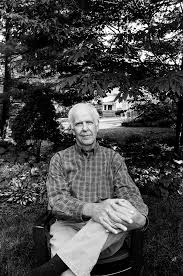
As I write this post, the U.S. presidential election is not yet decided. It could be days before we know for sure who will run our executive branch for the next four years. On social media, both Trump and Biden supporters are making jokes about comfort eating, stress management drinking, anxiety medication, and the possibility of moving to other countries if their candidate does not win. They’re adding nervously smiling emojis and panicky GIFs.
People turned out in record numbers for this election, and the results are down to the wire, both nationally and in many states. We can take two lessons from this election already: (1) Americans care very deeply about who leads our country, and (2) No matter how awful we think the other candidate is, we have to deal with their supporters. They’re there. They’re voting. And even if we could get around them, as Christians, we really can’t just put them in a box labeled “evil” and keep moving. Jesus modeled eating with tax collectors, called Paul the persecutor of Christians to follow him, and specifically told us not to judge other people (Matthew 7: 1-2). That means we shouldn’t be judging people who we think are wrongdoers and that if we do so anyway, we should still reach out to them.
Applied today, this message means Trump supporters and Biden supporters should be dining together and talking to one another and generally working together. We aren’t, and we have seen the results of that approach. However this election turns out, half of the country will be bitterly opposed to the result. We need to do better.

Parker Palmer, Founder of the Center for Courage and Renewal and author of Healing the Heart of Democracy, among many other books.
How do we begin? Start with Parker Palmer.
Four years ago, we published Bridging the Political Divide with Parker Palmer. I have written hundreds of classes for ChurchNext, and I can honestly say that Parker’s ideas have made more of an impact on how I think than any other course I can remember. Instead of dividing citizens into Left and Right, Parker divides us into Cynical (those who have given up on communities’ building anything through governmental or civic institutions) and Hopeful (those who believe in governmental and civic institutions’ potential to work for the good of the community). Hopeful people tend to be able to find common ground on which to build, even if they think very differently about the best approach to government, and that’s where he suggests we begin.
If you don’t find “a divided nation staring each other down across the aisle” to be a strong model for successful government, figure out how to live a different way. If you don’t know where to start or want new ideas about how to move forward, begin with Parker’s class and move on from there. The For Individuals course is free for now. You can also take the For Groups version with others in your community. Please click below for a preview.
